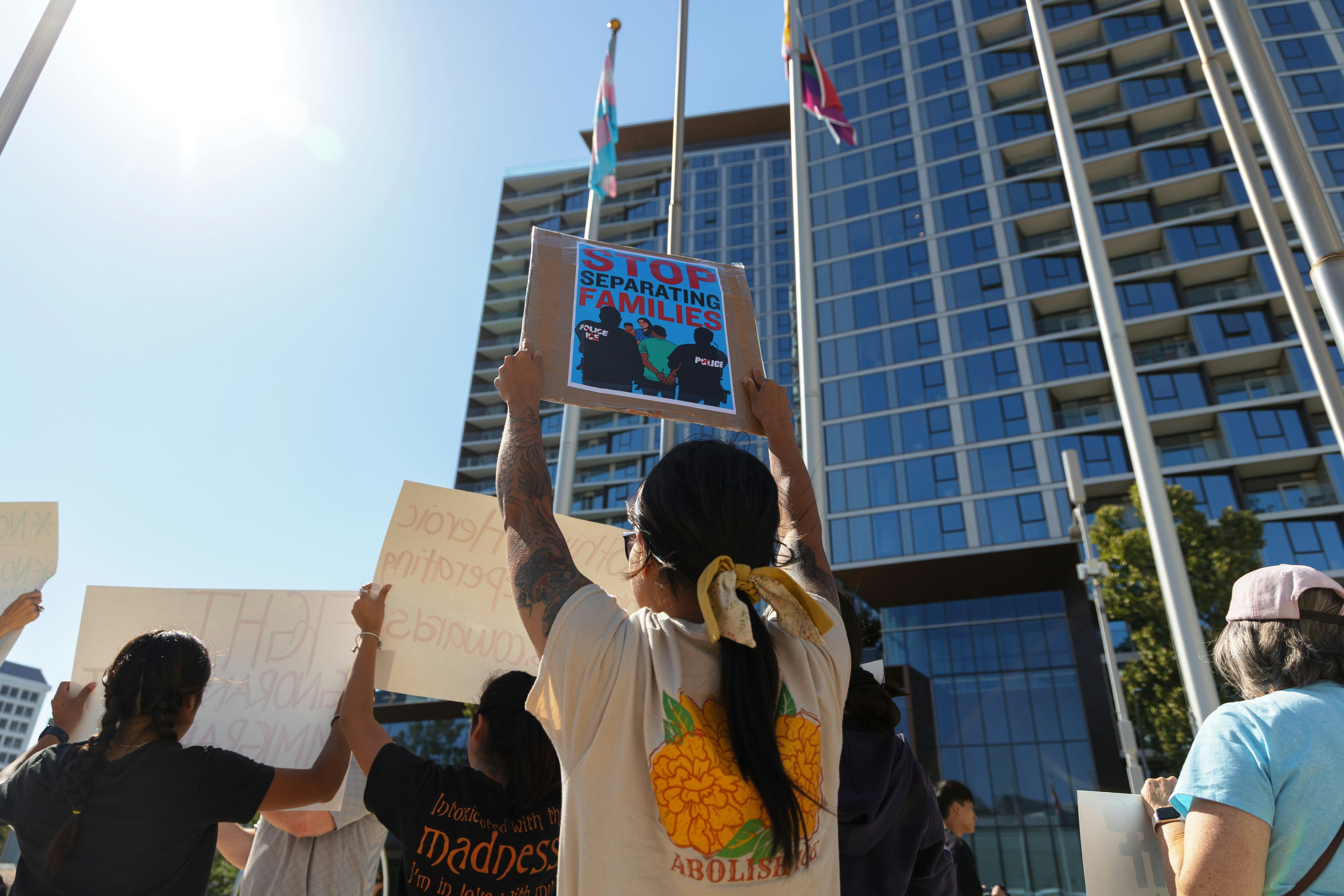
Recently, I traveled to Morocco with my husband and children. My husband, a Canadian citizen and U.S. green card holder, was extremely anxious about the trip. We had heard numerous stories of non-citizens—particularly Muslims—facing difficulties when re-entering the United States. I shared his concern, constantly worrying: What if something happens to him at the border? What would that mean for me and our children? Although we returned without incident, the anxiety lingered throughout the entire trip. This experience left me thinking about how many families, like ours, carry a quiet but constant fear, simply because of their immigration status.
In recent months, immigration enforcement in the U.S. has intensified again. Reports of ICE raids, detentions at routine check-ins, and expedited deportations have spread rapidly—through both official channels and word of mouth. These policy shifts don’t only affect undocumented individuals. Even green card holders, asylum seekers, and people with pending applications are experiencing increased scrutiny and fear.
It’s important to remember that being unlawfully present in the United States is not a crime—it is a civil violation. Yet immigrants are often treated as though they are criminals, leading to shame, stigma, and long-lasting emotional distress. The consequences—family separation, detention, and deportation—can be devastating and deeply traumatic, even when no actual crime has occurred.
What often goes unspoken is the emotional cost of this climate—how the constant threat of deportation affects the mental health of not only individuals, but entire communities. For many immigrant families, especially those with mixed legal status, daily life is shadowed by uncertainty. Parents may live in fear that one wrong step—missing a court hearing, a traffic stop, or an expired document—could tear their family apart. This fear affects everything: how they parent, whether they attend community events, even how they respond to their children’s needs.
Even those who are not directly affected by deportation are feeling its impact. In many immigrant neighborhoods, the fear is collective. People hear of a neighbor detained or see social media warnings about ICE presence and begin to change their behavior. Some skip medical appointments or stop attending school or mosque. Others avoid seeking help, worrying it might draw unwanted attention.
This chronic sense of fear creates what mental health professionals call “hypervigilance”—being constantly on alert, even when there’s no immediate threat. Over time, this can lead to anxiety, depression, and physical health issues. When entire communities are living like this, it becomes a form of collective trauma. The community carries the emotional weight, even when the stories aren’t theirs directly.
Despite these challenges, many immigrants don’t seek professional help for emotional distress. There are several reasons. Mental health is still stigmatized in many cultures, and therapy may be seen as a sign of weakness. Language barriers, lack of insurance, and fear of legal exposure also prevent people from reaching out.
In addition, many mental health providers are not equipped to understand the cultural or immigration-related experiences of their clients. This can leave immigrants feeling misunderstood or unsupported, reinforcing the belief that their suffering must be endured in silence.
Living under constant threat can feel overwhelming, but there are practical ways to protect your mental health and support others in your community. Simple coping skills such as grounding exercises—like deep breathing, mindfulness, or focusing on your senses—can help reduce anxiety in moments of stress. Maintaining strong social connections, whether through family, friends, or community groups, provides emotional support and combats isolation.
Engaging in mutual aid—sharing resources, information, and care—strengthens community resilience. It’s important to find trusted spaces where you feel safe to share your experiences, whether at a local mosque, cultural center, or community clinic.
If you or someone you know is struggling emotionally, seeking help is a sign of strength, not weakness. Reach out to culturally competent counselors or organizations that offer confidential support. Many communities have resources tailored to immigrant needs—connecting with them can make a critical difference.
Finally, advocacy matters. Speak up when you can, support immigrant rights initiatives, and educate others about the human realities behind immigration policies. Collective action not only pushes for systemic change but also reduces the isolation many feel.
Immigration policy doesn’t only impact legal status—it impacts mental health, family stability, and a community’s sense of belonging. As the nation continues to debate immigration laws, we must also acknowledge the emotional cost of enforcement-driven systems. Mental health is not a luxury. For immigrant communities, it is essential to survival and long-term well-being.
Mariam Chohan is a clinical psychologist practicing in Maryland. She holds a Doctor of Psychology (PsyD) degree and is a board-certified behavior analyst. As a Pakistani-American Muslim, she brings a culturally informed perspective to her work, specializing in evidence-based approaches to mental health including a focus on intergenerational trauma. Her practice focuses on promoting holistic well-being and fostering meaningful change in diverse populations. To inquire about services or schedule an appointment, please contact Mariam at mariam.chohan@gmail.com

